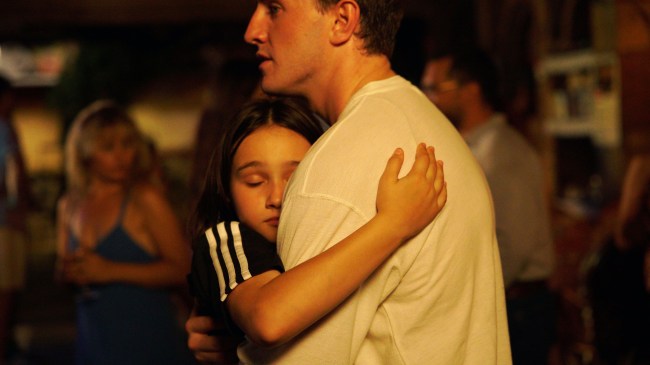“Aftersun” actress Frankie Corio admits she had “no idea” how melancholy Charlotte Wells’ debut feature gets. Corio, who co-stars with Paul Mescal in the 2022 Oscar-nominated film, shared on TikTok that writer/director Wells purposefully kept her in the dark about the true plot.
Mescal plays Corio’s onscreen father, whose vacation takes a very dark turn that will remain unspoiled. Wells took inspiration from her own dynamic with her late dad for her directorial debut. However, young actress Corio was only allowed to know her own scenes, and not the darker, more internal sequences with Mescal’s character.
“Funny story, I had almost no idea the film was supposed to be sad!” Corio wrote. “Charlotte the director only let me read my scenes. None of Paul’s…She wanted it to be very natural and truly unaware.”
In one of the most memorable scenes, single father Calum (Mescal) violently dances to David Bowie and Queen’s “Under Pressure.” Wells previously told IndieWire that she didn’t realize how ideal the song was for the sequence at first. She also had described the sequence as her “favorite part” of the film and told RogerEbert.com that “Under Pressure” was used almost “as a joke at first” with editor Blair McClendon before realizing that it lined up perfectly with each frame.
“‘Under Pressure,’ it’s so funny. I brought it into the edit of just having an idea of something to work with, something to give rhythm to the cut, with no conscious awareness of the lyrics and how straightforwardly they tied to the material,” Wells said to IndieWire. “And maybe that is completely unbelievable and crazy, but it’s true. But maybe some subconscious part of my brain knew what was happening. We brought it in, and it seemed to work, but if our producers who saw the film told us it was the worst choice we’ve ever made, we probably would have nodded in agreement and never come back to it. So we’re lucky it works off the bat and people seem to respond to it.”
She continued, “It’s very satisfying because it was executed just as it was in the script. It was always the culmination of the feeling that the whole film builds towards, so I am glad that it hits hard and it is ultimately an expression of grief and all of the complex feelings around grief. I think that is miraculously what people are responding to. I think that my work is always going to be personal in some ways. It’s easier to be more personal, to give more of yourself, if there is a veneer of fiction that is more obvious than here, where there is not a character that is so easy to draw a straight line between them and me. But it’s always going to be personal. I’m always going to be using film to express something of myself.”



